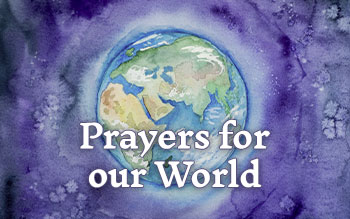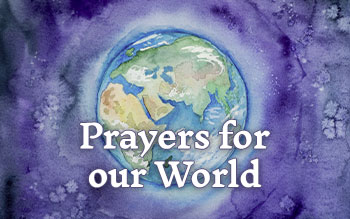Displaying items by tag: Yemen
Saudi Arabia recently reopened two key ports in Yemen. That won’t prevent a famine
For the past few weeks, Saudi Arabia has made it almost impossible to get food to Yemen, one of the poorest countries in the world. Yemen became an independent state in 1990, after gaining its sovereignty from The United Kingdom. The population of Yemen is 24,771,809 (2012). Yemen shares land borders with 2 countries: Saudi Arabia and Oman.
Yemen has been tiptoeing toward famine for the better part of three years. It's a man-made crisis born of immense political instability. (The country has been divided into pieces by warring factions backed by Saudi Arabia and Iran. Terrorist groups such as al-Qaeda control portions of land, too.) And it has been made worse by climate change, rendering a dry and arid country nearly devoid of usable land and clean water.
Eighty percent of the country's population lacks reliable access to food. (That includes around 11 million children; kids under 18 make up around half of the population.) Seven million people, one out of every four Yemenis, are entirely dependent on food assistance. The United Nations has called it the “worst humanitarian crisis in the world.”
Save the Children predicts that 50,000 Yemeni children under 5 will die by year end. That's a toddler dead every 10 minutes.
Yemen is on the brink of a horrible famine. Here’s how things got so bad.
For years, Saudi Arabia has played a dark role in Yemen's suffering. It backs the country's exiled government and has dropped thousands of bombs on military and civilian targets (including schools and hospitals) controlled by the Houthi rebels. (The United States has provided funding, logistical support and arms for this effort.) Nearly 10,000 Yemenis have been killed in the bombings.
In early November, things got worse. After the Houthis launched a missile into Saudi Arabia, the country retaliated with a near-total blockade of Yemen's seaports, airports and highways. This meant that aid groups could not ship in clean water, vital medication and food. Yemen imports at least 80 percent of its food, and the blockade pushed those 7 million people dependent on food assistance to the brink of famine.
Humanitarian groups condemned Saudi Arabia's action as inhumane. “I don't think there's any question the Saudi-led coalition, along with the Houthis and all of those involved, are using food as a weapon of war,” David Beasley, head of the United Nations' World Food Program, told CBS. “It's disgraceful.”
Finally, it seemed, there was a drop of good news. Last week, Saudi Arabia announced that it would partially lift its blockade, reopening airports and seaports controlled by its allies. Today, the Saudi-led coalition said it would allow aid deliveries to the rebel-held port of Hodeidah and Sanaa airport. That decision was set to kick in at noon Thursday. Jan Egeland, head of the Norwegian Refugee Council, wrote on Twitter that it was a “glimmer of hope.”
But aid groups say this new move, on its own, will do little to stem the impending crisis.
That's because aid groups alone simply can't get enough food, water and medicine into Yemen fast enough to feed and help the millions of people who need it. To stem a famine, USAID says, Yemen needs “large-scale imports of essential goods.” That means commercial shipments, not just supplies from the United Nations, which must go through rigorous inspections that slow delivery.
Yemenis need fuel, too, to power the water pumps that clean the country's water. Without it, diseases are spreading rapidly. Right now, the country is experiencing the worst cholera outbreak in history. Nearly 1 million people have been infected.
In a statement, International Rescue Committee Yemen country director Paolo Cernuschi explained that Saudi Arabia's latest effort isn't nearly enough.
“Even though tomorrow's reopening of ports to humanitarian traffic will ease the flow of aid, it will still leave the population of Yemen in a worse situation than they were two weeks ago before the blockade started,” he said. “Humanitarian aid alone cannot meet the needs of Yemenis who are unjustly bearing the brunt of this war. Access by commercial shipments of food and fuel must be resumed immediately, otherwise this action will do little to turn Yemen back from the brink of famine and crisis.”
The international community has also called on the United States to do more to end the Saudi blockade. But so far, the Trump administration has declined to publicly condemn the country's actions.
For a video overview of Yemen and its needs visit: http://prayercast.com/yemen.html
SPOTLIGHT: Critical situation in Yemen
We are focusing a special spotlight this month on the very needy Middle East country of Yemen. We would encourage our prayer partners to join with us as we intercede for the complex situation there.
Yemen, the birthplace of algebra, has a long history of trade in frankincense and myrrh and now makes most of its revenue exporting oil products. Yet it is sadly the poorest Arab nation and is currently facing the world’s largest humanitarian crisis. Decades of war and unrest have torn this nation apart, leaving it crippled by long-standing social, political, and economic instability.
Civilians have borne the brunt of the violence and suffering caused by the unravelling turmoil of civil war since 2012. This has left 80% of the population in need of some form of humanitarian assistance. Yemen’s hunger crisis is one of the worst in the world. Yemeni’s have also endured the devastation of widespread diseases such as cholera. With only 45% of hospitals functional, medications in short supply, and little to no clean drinking water, diseases that should be preventable and treatable have claimed the lives of thousands. The nation’s immense water shortage has only been made worse by the widespread use of the country’s most popular narcotic, qat, which demands approximately 40% of the nation’s supply. Terrorist and militant groups like Al-Qaeda, Islamic State, and the Houthis have taken advantage of the chaos and human suffering to gain territory and momentum.
- Pray for peace and for terrorist and militant groups to be disarmed.
- Pray for sufficient famine relief and medical aid to access all areas of the population in need.
- Pray for the Gospel to go forth in power despite current legal restrictions.
- Pray for freedom from the narcotic 'qat' that holds 80% of Yemeni adult’s captive.
- Pray for the desperate economic situation to ignite a longing for lasting hope and security.
For a video overview of Yemen and its needs visit: http://prayercast.com/yemen.html
Yemen: civilians suffer from blockade
A Saudi-led coalition backing Yemen's government will not allow rebel-controlled air and sea ports to reopen until a better system is created to prevent weapons being smuggled from Iran. The coalition tightened its two-year blockade after a ballistic missile was fired at Riyadh airport. Iran denied arming Houthi rebels, and said the missile launch was ‘an independent action’ in response to coalition ‘aggression’. 2,000+ have died since April from cholera, and 3,500 cases are being treated daily. The blockade will undo efforts to curtail its spread. 27,000 children a month are treated for severe and acute malnutrition. With no aid deliveries, nutrition supplies will run out within two months, affecting the treatment of 400,000 children over the coming year. The children will bear the scars of this conflict long into the future. Civilians are the only people paying the price for political wrangling.
Yemen: kidnapped priest finally released
On 18 March 2016 Prayer Alert readers prayed for the safety of an Indian priest who had been abducted when a Catholic care home for the frail and disabled in Aden was attacked. See On 12 September India’s foreign minister released a tweet that read, ‘I am happy to say that Father Tom has been rescued’. Last December he appeared in a video, begging for his life. Pope Francis appealed for his release, but nothing seemed to happen. The video confirmed he was in very poor health. He will now go to Rome, where he will get medical treatment.
Yemen: cholera killing one person an hour
Unicef reports that cholera cases in Yemen could quadruple in the next month to 300,000. A runaway epidemic is killing someone nearly every hour and threatening the lives of thousands, says Oxfam. There is an urgent call going out for massive aid efforts and an immediate ceasefire to allow health and aid workers to tackle the outbreak. The World Health Organisation said that between 27 April and 3 June, 676 people died and over 86,000 were suspected of having the disease. Yemen’s neglected medical reporting system and the widespread nature of the epidemic mean that these figures are likely to be under-reporting the full scale of the crisis. The crisis follows two years of war which have decimated water and sanitation systems, restricted imports, and left millions one step away from famine.
Yemen: cultural capital of conflict
The city of Taiz has 2.4 million people, living in tragedy resulting from the two-year war. The city is important geographically, as it lies between the southern provinces, controlled by Hadi’s forces, and the northern provinces which are controlled by former President Saleh’s forces and the Houthis. Also, its southwestern coast overlooks the strategic Bab al-Mandab Strait, which sees one-third of the oil trade every day. Taiz has become central to the Yemen conflict, and militants are increasingly interested in controlling it. It has become a city ravaged by war and the Houthi blockade. Disease and malnutrition threaten people’s lives. Public employees’ salaries are cut, it is difficult to get relief aid to the displaced and afflicted, and living conditions are going downhill. People have fled to temporary settlements or camps, without access to sanitation or basic needs.
Global: 20 million close to starvation
In February Prayer Alert readers were told of 1.4 million children at risk of starvation in Yemen, South Sudan, Somalia, and northeast Nigeria. The crisis has worsened. Millions of people are caught in conflicts within their countries. Livelihoods are disrupted, and they cannot produce food. This is a God-sized situation that requires intercession and His intervention. The UN needs $4.4 billion by July to prevent famine in these countries. An official said the organisation is facing its largest humanitarian crisis since its creation. Without the funding and collective and coordinated global efforts, people will simply starve to death. Yemen's needs are the most critical: two-thirds of the population (19 million) need assistance. In South Sudan, 7.5 million need help. In Somalia and northeastern Nigeria there is also severe food insecurity because of violence and instability. See also






